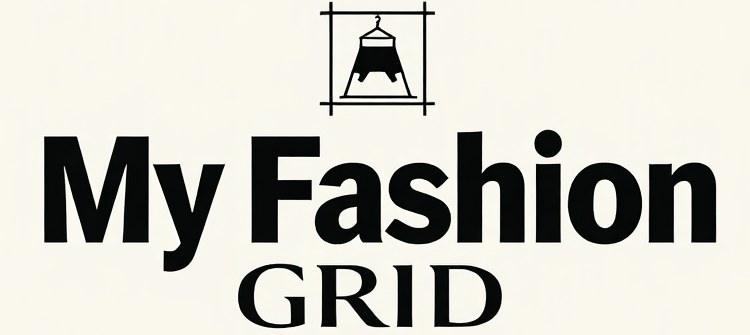Are you wondering whether shaving your beard is haram? This question often comes up among Muslim men who want to follow their faith correctly but aren’t sure about the rules.
Your beard is more than just facial hair; it holds religious and cultural significance. But what does Islam actually say about shaving it? Some say it’s strictly forbidden, while others believe it’s a personal choice or even just disliked. Understanding the true ruling can help you make the right decision without confusion or fear.
Keep reading to discover what the majority of scholars say, the reasons behind their views, and what the minority opinions are. This clarity might just change how you think about your beard forever.

Credit: www.youtube.com
Majority Opinion On Beard Shaving
The majority of Muslim scholars agree that shaving the beard is not allowed. They base this view on the teachings of the Prophet Muhammad and Islamic law. The beard is seen as a symbol of faith and identity. Removing it goes against these religious values for most scholars. This opinion is strong and widely accepted in the Muslim community worldwide.
Religious Commandments
Many scholars say growing a beard is a religious duty. It is seen as following the Prophet’s example strictly. The beard is part of the Islamic dress code for men. Cutting or shaving it is viewed as disobedience. The command to keep the beard comes from authentic teachings. These teachings guide Muslims on how to live their faith.
Differentiation From Non-muslims
The beard helps Muslims stand apart from others. The Prophet encouraged keeping the beard to show distinct identity. It is a sign of faith and belonging. Shaving the beard blurs this difference. Many scholars stress this point to maintain Muslim identity. The beard is more than hair; it is a symbol.
Changing Allah’s Creation
Some scholars say shaving the beard means changing Allah’s creation. Islam teaches respect for the natural form given by Allah. Altering it without necessity is forbidden. The beard is part of this natural form. Removing it is seen as going against divine will. This belief strengthens the view that shaving is haram.

Credit: www.reddit.com
Minority Views On Beard Trimming
Minority views on beard trimming offer a different perspective on this debated topic. These views do not see beard shaving as strictly forbidden. Instead, they consider it more a matter of personal preference and interpretation of religious texts. Understanding these opinions helps broaden the discussion beyond majority rulings.
Recommendation Vs Obligation
Some scholars in the minority argue that growing a beard is recommended, not obligatory. They believe the Prophet’s guidance encourages beards but does not make them mandatory. This view allows for trimming or shaving without sin. It treats beard maintenance as a personal act of devotion, not a strict rule.
Personal Choice And Dislike
Others in the minority consider shaving the beard disliked (makruh), but not sinful. They accept that some men may choose to shave for cleanliness or comfort. This choice is respected as long as it does not show disrespect to Islamic teachings. The dislike is mild and not enforced as a harsh rule.
Scriptural Foundations
The scriptural foundations for the ruling on shaving the beard come from clear Islamic texts. These texts guide Muslims on what is permissible and what is not. Understanding these sources helps clarify the issue and why many scholars hold their views. The primary sources include the Quran and the Hadith of Prophet Muhammad (peace be upon him). The Quran does not explicitly mention the beard. Hence, the Hadith plays a key role in shaping the ruling.
Scholars rely heavily on the sayings and actions of the Prophet to understand the proper Islamic practices. The beard is often discussed in this context. The Prophet’s guidance is considered a model for Muslims worldwide. This is why the Hadith evidence and following the Sunnah are essential to grasp the rulings about the beard.
Authentic Hadith Evidence
Several authentic Hadith mention the beard and its significance. The Prophet instructed Muslim men to grow their beards and trim their mustaches. One well-known Hadith states, “Trim the mustache and let the beard grow.” This Hadith is found in Sahih al-Bukhari and Sahih Muslim, two of the most reliable collections.
These texts show the Prophet’s clear preference for maintaining a beard. Scholars see this as a direct command rather than a mere suggestion. The Hadith also emphasize distinguishing Muslims from non-Muslims by this practice. This distinction is important in Islamic law.
Following The Sunnah
The Sunnah refers to the practices and traditions of the Prophet Muhammad. Following the Sunnah means living according to his example in daily life. Growing the beard is part of this example. Many scholars argue that shaving the beard goes against the Sunnah.
The beard is seen as a symbol of Muslim identity and piety. Keeping it aligns with the Prophet’s way. The Sunnah encourages Muslims to avoid actions that contradict the Prophet’s teachings. Therefore, shaving the beard is often viewed as not following the Sunnah properly.
Cultural And Social Context
The cultural and social context plays a key role in understanding the beard’s significance in Islam. It is not just a personal choice. It reflects identity, tradition, and community values. The beard has deep roots in history and society. These roots influence how people see shaving or keeping it.
In many Muslim societies, a beard symbolizes piety and respect. It connects people to their faith and heritage. Social expectations often support growing a beard. This support varies by region and cultural background. The beard can signal belonging or difference within groups. These layers make the discussion about shaving complex.
Historical Practices
Historically, Muslim men grew beards following the Prophet Muhammad’s example. This practice dates back over 1,400 years. The beard was a sign of religious devotion and maturity. Early Islamic communities saw it as a clear marker of faith. It helped distinguish Muslims from others in multi-faith societies. Shaving was rare and often discouraged. The beard became more than hair; it was a symbol of identity and discipline.
Across different Islamic empires, beards remained common. Scholars and leaders often wore full beards. This reinforced their religious and social status. Cultural variations existed but the core idea stayed consistent. Respect for tradition kept the beard meaningful throughout history.
Modern Interpretations
Today, views on shaving the beard differ widely. Some Muslims strictly avoid shaving, considering it haram. Others see it as a personal choice or cultural habit. Modern lifestyles influence these attitudes. Urban life, professional settings, and fashion trends affect decisions. Many young Muslims balance tradition and modernity in their appearance.
Islamic scholars offer varied opinions. Some maintain the beard is obligatory. Others say it is recommended but not mandatory. This diversity reflects changing social realities. Globalization and cultural exchange shape modern beliefs. The beard remains a symbol, but its meaning adapts. Personal faith and social context guide each person’s choice.
Practical Considerations
Practical considerations play a key role in the decision to shave or keep a beard. These factors affect daily life and personal comfort. Understanding them helps balance religious views with everyday needs.
Health And Hygiene
A beard can trap dirt, dust, and sweat. Proper washing keeps the skin healthy and prevents infections. Shaving may reduce skin irritation for some people. Others find shaving causes razor bumps or cuts. Regular care is essential whether you keep or shave your beard. Cleanliness supports good health and a neat appearance.
Professional And Social Settings
Some workplaces have dress codes or grooming policies. A clean-shaven look may be required in certain jobs. Beards might be seen as less formal in some cultures. Socially, opinions on beards vary widely. Some communities respect beards as a sign of maturity. Others may view shaving as more modern or tidy. Consider your environment and comfort when deciding.

Credit: www.reddit.com
Common Questions Answered
Many Muslims wonder about the rules on shaving the beard. Questions arise often. This section answers common doubts clearly. It helps readers understand different views. It also explains how these choices affect faith. Read on to learn more.
Is Shaving Always Haram?
Not all scholars agree shaving the beard is always haram. The majority say it is forbidden. They base this on the Prophet’s teachings. They see it as changing Allah’s creation. Yet some scholars say it is disliked but not sinful. They view shaving as makruh, meaning better to avoid but not a sin. Context matters. Personal intention and cultural reasons may affect the ruling.
Can Beard Trimming Be Allowed?
Many scholars allow trimming the beard. Trimming means cutting a small part to keep it neat. It differs from shaving the entire beard. The Prophet advised keeping beards tidy. Trimming helps maintain a clean appearance. It is often seen as acceptable and practical. Excessive trimming that removes the beard fully is usually not allowed. Keeping a balance is key.
Impact On Personal Faith
Growing or shaving a beard can affect one’s faith. The beard is a symbol of following the Sunnah. It shows respect for Islamic traditions. Some men feel closer to Allah by keeping their beard. Others may struggle with cultural or work pressures. Faith grows through intention and actions. Wearing a beard does not alone define one’s piety. Sincerity and good deeds matter most.
Frequently Asked Questions
Can Muslims Shave Their Beard?
Most Muslim scholars consider shaving the beard forbidden (haram) as it follows the Prophet’s command. A minority view sees it as disliked (makruh) but not sinful. Growing a beard reflects emulating the Sunnah and differentiating from non-Muslims.
Is Cutting My Beard A Sin?
Cutting the beard is considered sinful by most Islamic scholars, as it goes against the Prophet’s teachings. Some view it as disliked but not sinful. Maintaining a beard is widely seen as obligatory and an important religious practice in Islam.
What Parts Are Haram To Shave?
Shaving the beard is generally considered haram in Islam for men. Avoid shaving the beard, mustache area is allowed. Other body parts have no specific prohibition.
Is It A Sin To Trim A Beard In Islam?
Most Islamic scholars consider trimming or shaving the beard sinful, viewing it as disobedience to the Prophet’s teachings. Some scholars see it as disliked but not sinful. Overall, keeping the beard is strongly encouraged and often regarded as obligatory in Islam.
Conclusion
Shaving the beard remains a debated topic in Islam. Many scholars say it is forbidden based on the Prophet’s teachings. Others see it as disliked but not sinful. Personal belief and understanding influence each person’s choice. Respect for these views helps maintain unity among Muslims.
Growing or shaving the beard should reflect sincere faith and intention. Remember, faith is about heart and actions, not just appearance.

Rubel Miah is the co-founder and senior writer at MyFashionGrid, where he shares practical and expert-backed male grooming advice. With years of experience testing grooming products and perfecting men’s style routines, Rubel’s goal is to help men look sharp and feel confident—whether it’s mastering the perfect shave, finding the right haircut, or upgrading their daily grooming game. When he’s not writing, you’ll find him experimenting with new razors or exploring the latest trends in men’s fashion and self-care.

